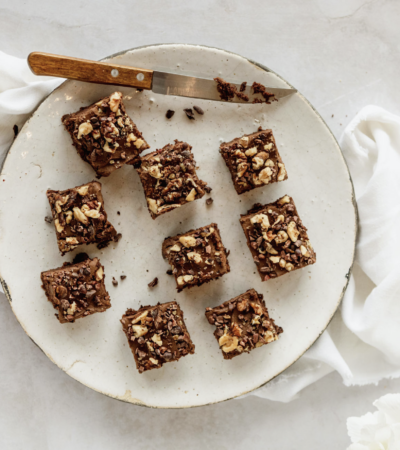Polycystic ovary syndrome (PCOS) is a common condition that affects around one in every five women in the UK. The condition comprises cysts in the ovaries, high levels of male hormones and irregular periods – it can be a daunting package.
Battling symptoms such as acne, weight gain, hair loss, depression and anxiety can leave you lacking in self-confidence, fed up with the woman’s lot and the curse of having ovaries – especially if you compare yourself to the ridiculous standards of beauty often seen in women’s magazines.
If you find yourself experiencing symptoms of PCOS, make sure that you get yourself diagnosed and don’t think that you have to simply put up with ‘female complaints’.
Women’s bodies are designed to do miraculous things and that is a blessing – but it can seem unfair when they are not functioning as they should.
One thing is for sure, PCOS sucks, but it pushes you to make sure that you take care of yourself and there are definitely means of taking control of your diagnosis. Here are 10 ways in which you can cope with and conquer symptoms of PCOS:
Exercise – PCOS sufferers are prone to hormonal weight gain, so regular exercise will help you to keep trim. Not only this but the more muscle mass you have, the better you can metabolise glucose and handle carbs. Don’t over-do the weight loss as this is not only unhealthy, but it can also exacerbate your symptoms.
It is important to incorporate an exercise into your routine that you really enjoy, as this will no only motivate you to do it, but it will also help you to de-stress. Ask friends to join you and their company will also make the activity more enjoyable and social. How about horse-riding, yoga, surfing, paddle boarding or rowing?
Add natural supplements to your diet – The right supplements can improve your symptoms by balancing your hormones, boosting ovulation and egg quality and improving energy levels. Try:
– A probiotic supplement – studies show looking after your gut with probiotics can reduce the chronic inflammation which PCOS sufferers experience which impacts on insulin resistance, weight gain and elevates depression
– Vitamin D – The Yale PCOS Program found that when vitamin D was given as part of their treatment plan for PCOS, symptoms improved – this is because many of the symptoms of vitamin D deficiency also affect women with PCOS
Avoid white sugar – Polycystic ovarian syndrome is your body’s way of saying you can’t handle high sugar levels. You are probably insulin resistant and white sugar does not help. Try some alternatives like honey, stevia, coconut nectar, maple syrup or agave nectar. Make sure you are aware of hidden sugars, like simple carbs and sauces.
Eat organic food – organic produce won’t have been treated with chemicals and pesticides that can add to your hormonal imbalance. It is wise to eat as much fresh produce as possible for maximum vitamin content.
Reduce foods in your diet that cause spikes in blood sugar – reduce your consumption of white carbs. Make sure whatever you’re eating stabilises your blood sugar by including protein as well as low GI carbs such as sweet potato, quinoa and brown rice.
Avoid stress and lack of sleep – both can cause your hormones to go wild. Something also to note is high caffeine consumption can impact the quality of your sleep. Try swapping your coffee for herbal teas – we love green tea, fennel, chamomile or peppermint to help reduce bloating.
Eat anti-inflammatory foods – Fill your diet with colourful and delicious anti-inflammatory foods such as blueberries, pineapples, tomatoes and oranges.
Include some healthy fats – found in avocados or oily fish, healthy fats help keep you satisfied and aid the body’s absorption of key vitamins, in turn helping with healthy female hormone levels. Flaxseed oil contains omega-6 fatty acids and is jam-packed with lignans – polyphenols found in plants that are said to balance hormones. Try adding some to a smoothie or stir into your porridge.
Eat iron-rich foods – one PCOS symptom sufferers often experience is heavy periods. It is important to make sure that you are not iron deficient as a result. Make sure that you include iron-rich foods in your diet. You might automatically think this means more red meat, but there are also high levels of iron in many vegetables such as kale, spinach and chickpeas to name a few.
Drink more water – I know this seems incredibly boring and basic and you have heard it too many times before, but it deserves a mention on this list in relation to directly helping your PCOS symptoms. Drinking water helps to reduce bloating which you will be all too familiar with as a PCOS sufferer. Bloating is caused by water retention when your body stores water for its bodily functions. As you make a conscious effort to drink more water, your kidneys and liver will be able to work at their best. The water will also flush out excess sodium from the body, in turn reducing your distended tummy and general puffiness.
It is well-known that positive thinking aids your health, reduces stress and can help you lead a better life in pretty much every way. Positive thinking does not mean that you simply gloss over the negative impacts of PCOS – but it is all about approaching the challenges that PCOS gives you with a positive attitude.
Managing your PCOS symptoms and gaining back control will allow you to celebrate your femininity (and your ovaries!). PCOS can encourage you to be the healthiest version of yourself and you will be rewarded – now and in the future.














